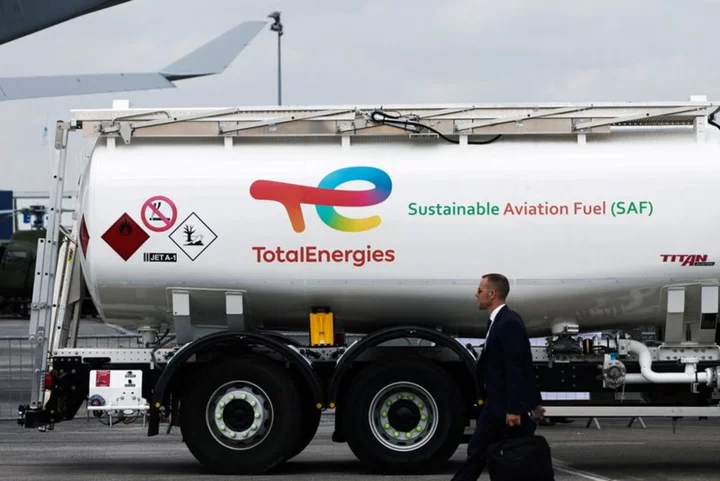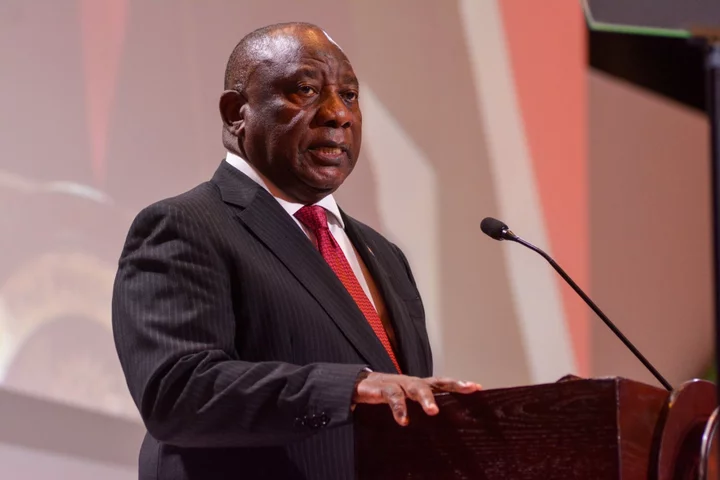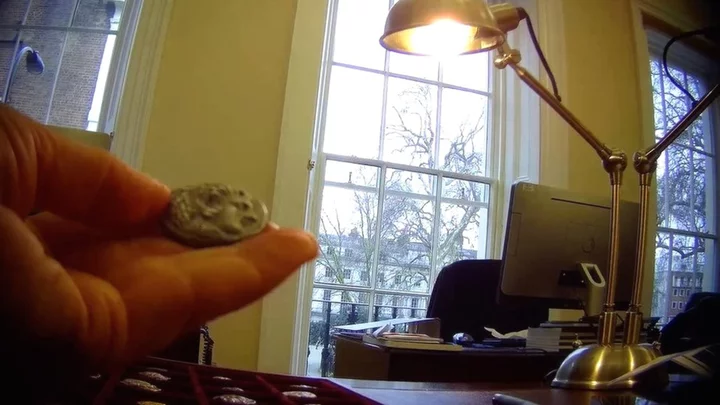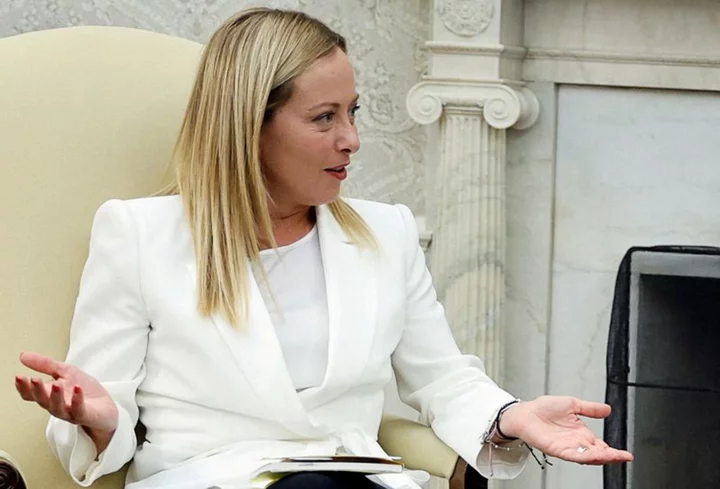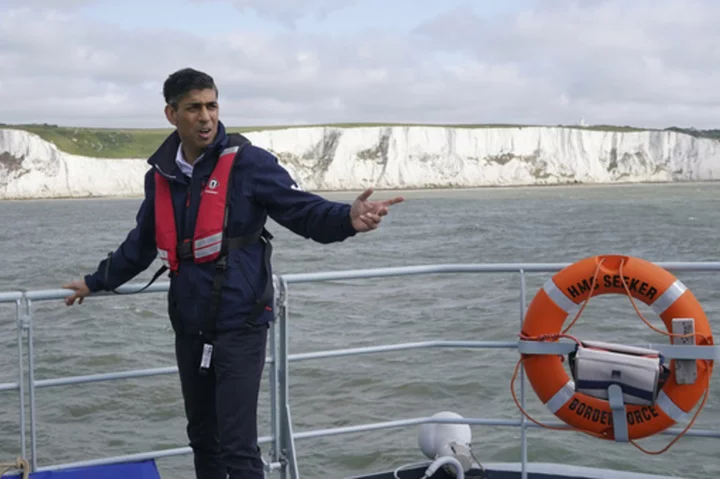By Allison Lampert
(Reuters) -Global aviation officials on Friday sought to agree an interim target for cutting carbon emissions from the airline industry though the use of alternative jet fuels, as they gathered in Dubai ahead of the COP28 climate summit.
The U.N.-led Conference on Aviation and Alternative Fuels (CAAF) was debating a goal to cut emissions from international aviation by 5%-8% by 2030 through the use of less polluting fuels, according to a proposal released by organizers.
Airlines are under pressure to lower emissions from flights as traffic rebounds, with countries at an International Civil Aviation Organization (ICAO) assembly joining industry last year to target net zero emissions from the sector by 2050.
Some European and other nations are pushing for interim targets on alternatives fuels known as sustainable aviation fuel (SAF) made from materials like used cooking oil, which are critical to keeping the emissions reduction effort on track.
Environmentalists have voiced concerns that the discussions in Dubai won't go far enough to boost SAF, which remains costly and in short supply.
Some emerging economies are concerned they will have to import the costly fuel and want investment in the energy transition to be shared more equally so they can also be producers.
While not binding, some nations said such pledges could encourage critical investments needed to ramp up SAF production, which now amounts to less than 1% of total jet fuel.
Environmentalists, however, questioned the lack of teeth in voluntary pledges.
"ICAO has no mandate to enforce this target so it will likely end up in smoke. States can decide to meet whatever target they set themselves," said Jo Dardenne, aviation director at the Brussels-based group Transport & Environment.
Industry estimates it will take between $1.45 trillion and $3.2 trillion in financing for SAF capital development to achieve the sector's net zero emissions goal.
Making access to financing more readily available to developing countries, another conference goal, is needed to bolster SAF production outside the U.S. and Europe.
Francis Mwangi, senior planning officer at Kenya's Civil Aviation Authority, his country needs financing to study the economic benefits of domestic SAF production and for using an old Mombasa-based refinery to produce the fuel.
"We are ready to move and produce SAF in Kenya," Mwangi said.
(Reporting by Allison Lampert in Montreal. Additional reporting by Tim Hepher in Paris; Editing by Jonathan Oatis and Jan Harvey)

